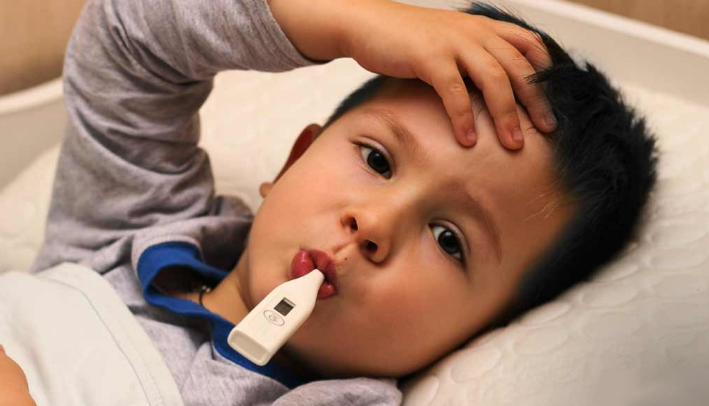Viral Fever in Children: Causes, Symptoms, and Care
Viral fever is a common illness among children, often causing concern for parents due to its sudden onset and symptoms. It typically occurs when the body reacts to a viral infection, leading to an increase in temperature. In most cases, viral fevers are self-limiting and manageable at home, but understanding the condition is crucial for proper care.
What is Viral Fever?
Viral fever refers to any fever caused by a viral infection. It results from the body’s immune response to fight off the invading virus, leading to an elevated temperature. These infections are common, especially in children, whose immune systems are still developing, making them more vulnerable to viruses.
Causes of Viral Fever in Children
Several viruses can cause fever in children, including:
- Common cold viruses (like rhinovirus)
- Influenza viruses (flu)
- Adenoviruses (respiratory infections)
- Enteroviruses (cause diarrhea or hand-foot-mouth disease)
- Dengue or chikungunya viruses (common in tropical regions)
- Respiratory Syncytial Virus (RSV) (common in infants)
Children are more susceptible to infections because of frequent exposure in schools, playgrounds, and daycares.
Symptoms of Viral Fever in Children
Symptoms can vary depending on the virus but generally include:
- High temperature (above 100.4°F or 38°C)
- Chills and shivering
- Body aches and fatigue
- Cough, sore throat, or runny nose (for respiratory infections)
- Loss of appetite
- Diarrhea or vomiting (in case of enteroviruses)
- Headaches
- Rash (seen in viral infections like dengue or measles)
These symptoms usually last 3–5 days, though fatigue might persist for a few more days.
When to See a Doctor
While most viral fevers resolve on their own, immediate medical attention is necessary if the child experiences:
- Fever lasting more than 5 days
- Very high fever (above 104°F or 40°C)
- Seizures or convulsions
- Severe headaches, confusion, or irritability
- Signs of dehydration (dry mouth, no urination, sunken eyes)
- Breathing difficulty or chest pain
- Persistent vomiting or diarrhea
- Rash that spreads quickly or does not fade on pressing
These symptoms could indicate a more serious infection requiring medical care.
Home Care and Treatment
Most viral fevers can be treated at home with supportive care, including:
1. Rest and Hydration
- Ensure the child gets plenty of rest to recover.
- Encourage drinking water, soups, or oral rehydration solutions (ORS) to avoid dehydration.
2. Fever Management
- Use a thermometer to monitor temperature regularly.
- Administer paracetamol (acetaminophen) or ibuprofen (as prescribed by a doctor) to reduce fever and discomfort.
3. Comfort Measures
- Give a lukewarm sponge bath to help bring down fever.
- Dress the child in light clothing to avoid overheating.
4. Nutritious Food
- Offer easily digestible foods like rice, toast, fruits, and yogurt.
- Do not force food if the child has no appetite; focus more on fluids.
5. Isolation
- Keep the child away from other family members, especially younger children, to prevent the spread of infection.
Preventing Viral Fevers in Children
Although not all viral infections can be prevented, following these tips can reduce the risk:
- Good hygiene: Teach children to wash their hands frequently.
- Avoid contact with sick individuals, especially during flu seasons.
- Ensure children receive their vaccinations on time, such as flu shots and other recommended vaccines.
- Promote a healthy diet and lifestyle to strengthen their immune system.
Conclusion
Viral fevers in children are common but usually not dangerous. With timely care and attention, most children recover without complications. However, staying vigilant and knowing when to seek medical help is essential. Parents can manage the illness effectively at home through rest, hydration, and symptom relief, ensuring their little ones bounce back to good health soon.
If the fever persists or is accompanied by severe symptoms, consulting a pediatrician promptly ensures proper treatment and peace of mind.


